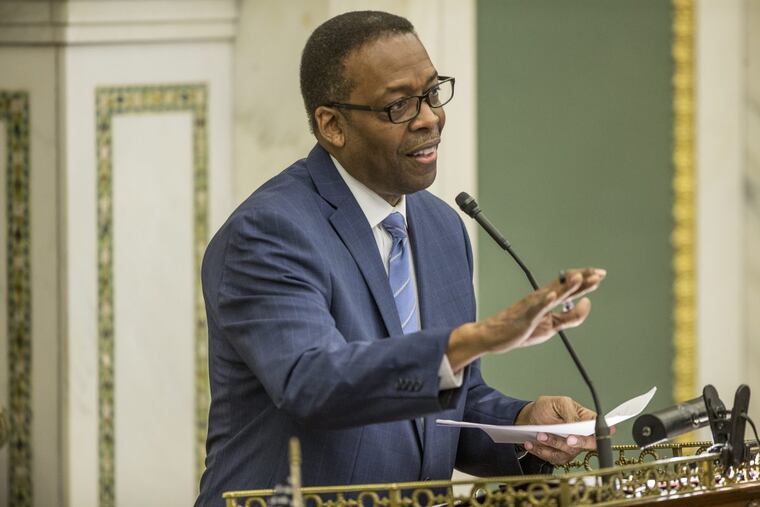Satellite-dish ban in Philly struck down by FCC decision
The Federal Communications Commission last week invalidated a 2011 Philadelphia ordinance restricting satellite dishes in the city, an ordinance proposed years ago by now-City Council President Darrell Clarke.

Here's the latest dish on satellite dishes.
The Federal Communications Commission has invalidated a 2011 Philadelphia ordinance restricting placement of satellite dishes in the city, an ordinance put forth years ago by now-City Council President Darrell Clarke.
The ruling on Wednesday now means there are no official restrictions on satellite dishes across the city.
Philadelphia passed the ordinance citing the dish's potential effects on aesthetics, property values, and safety, but enforcement was stayed while the FCC deliberated for seven years.
The FCC said the ban is prohibited by its over-the-air reception-devices rule, which protects the rights of antenna users to install and use such devices to get more choice. A full copy of the ruling is available at the FCC's website.
"We are pleased that the FCC found that Philadelphia's dish-placement restrictions were unreasonable, and would have made television service much more expensive for tens of thousands of Philadelphians," said Steve Hill, president of the Satellite Broadcasting and Communications Association, in a statement.
Clarke spokeswoman Jane Roh said "this ordinance was introduced in response to constituent complaints that front-facing satellites are unsightly and frequently abandoned, meaning, there are a significant number of nonfunctioning satellites on top of homes throughout the city."
"Council President Clarke will continue to press the satellite-television industry to take some responsibility for abandoned satellites, which are installed by trained professionals for good reason and should be uninstalled by trained professionals for the same reasons," she added.
Clarke introduced the dish-ban bill to regulate the placement of unsightly satellite dishes around the city, but immediately faced opposition from satellite companies and landlords.
His bill forbade property owners from placing satellites on a building's street-front side and required the removal of satellites not in use. Some telecommunications companies leave up satellites that they have installed, even if service is canceled.
This week, the FCC's legal ruling granted a 2012 petition by the Satellite Broadcasting and Communications Association, a Washington lobbying group for satellite-dish companies such as DirecTV and DISH Network.
The FCC permanently invalidated Philadelphia's dish-placement legislation. It found that numerous provisions in the law — including placement restrictions, paperwork obligations, and painting requirements — "unreasonably raised the cost of satellite-television service, unreasonably delayed dish installation, or unreasonably hindered reception," the industry statement said. "We hope that other city governments considering similar restrictions will take heed of the FCC's decision."
City officials said they were simply acting on behalf of residents who wanted to get rid of "dish blight."
Roh also noted that the city ordinance received broad support from the National League of Cities and the National Association of Counties.
Other cities including Boston and Los Angeles have also considered bans on satellite dishes, but the ruling applies only to Philadelphia, an FCC spokesman said.